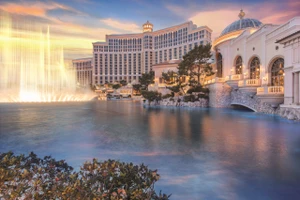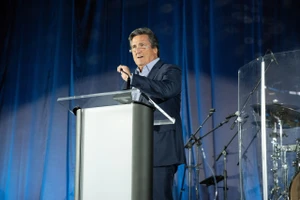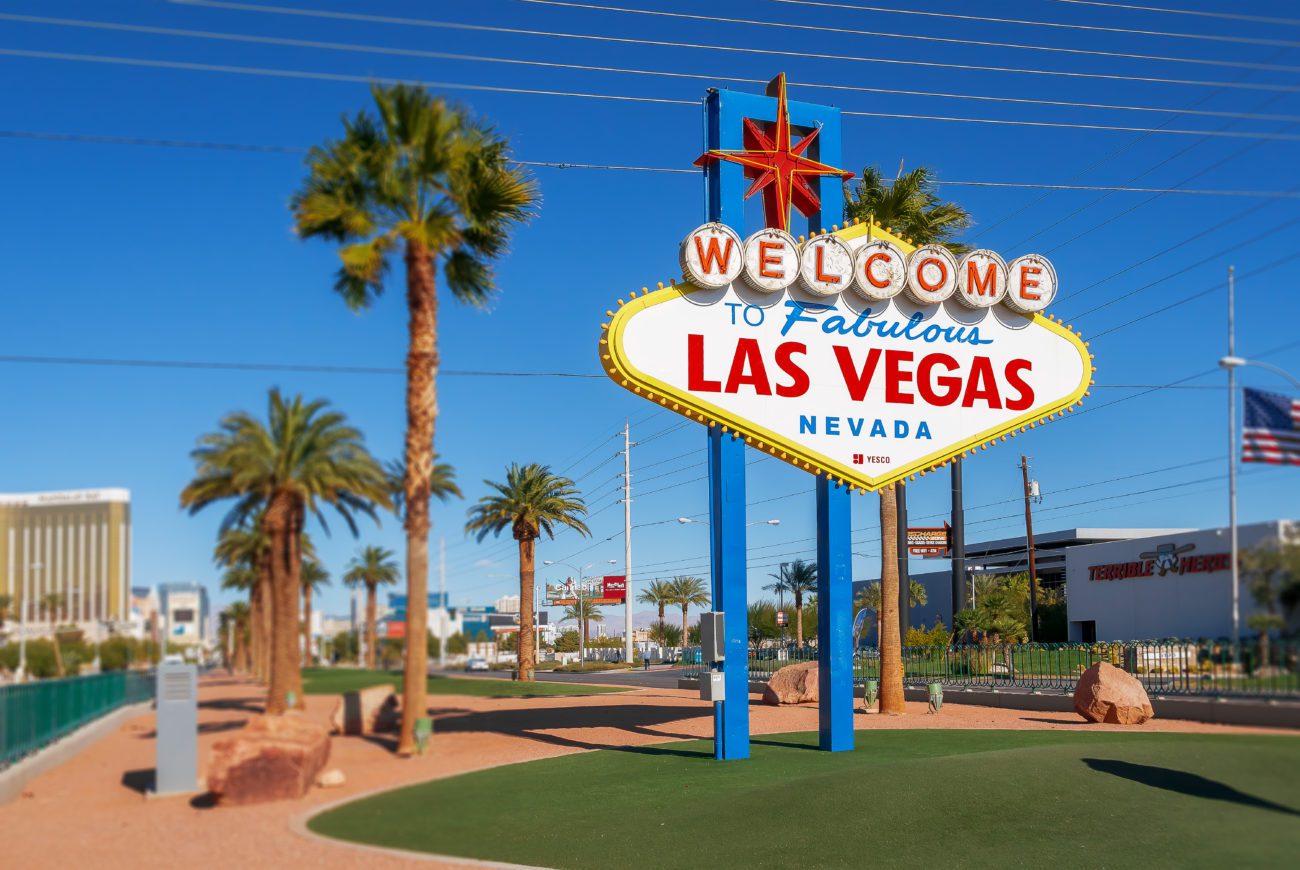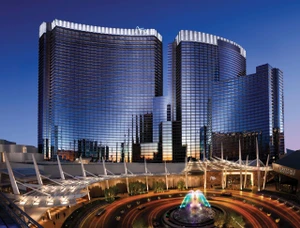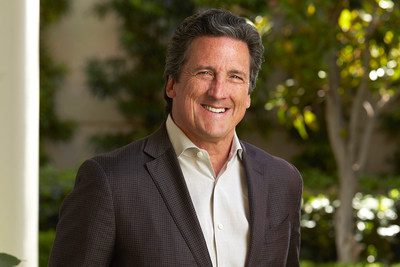MGM Resorts CEO Bill Hornbuckle’s view from the top
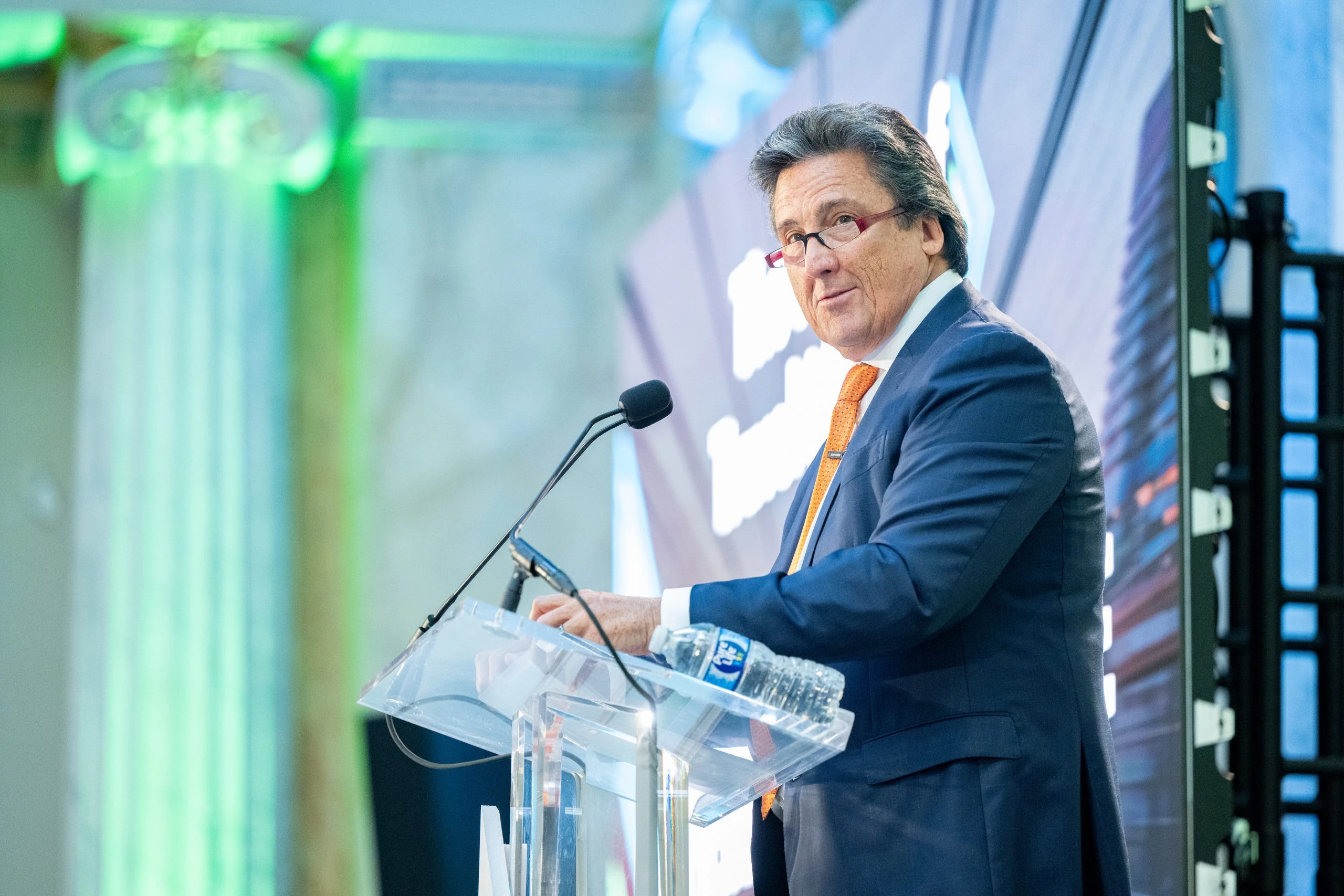
“About four months ago I was sitting at Spago, on the balcony having dinner with my wife looking across at the Jockey Club,” MGM Resorts CEO Bill Hornbuckle says. “There were very few lights on, but it’s still going.”
It’s a perfect illustration of where Hornbuckle started and how it’s going. He started his career as a busboy in the Jockey Club after moving to Las Vegas from Connecticut.
The Jockey Club opened its doors in 1974 and, with around 1,500 timeshare owners, it’s unlikely to disappear from the landscape. But its surroundings would be almost unrecognisable for anyone at its opening.
The casinos are still there. But gambling isn’t the only attraction today. Now the crowds flock to Vegas for football, F1 and soon Major League Baseball as the Oakland A’s prepare to relocate. That’s if they’re not in town for fine dining or clubbing.
And as chief executive of the Bellagio’s owner MGM Resorts, getting a table at a restaurant like Spago probably isn’t much of a problem these days.
“I was not the world’s best student“
Going from bussing tables at a timeshare to running the company behind some of the world’s most renowned integrated resorts is a hell of a journey. Hornbuckle admits he’s amazed at how far he’s come.
“I didn’t grow up in a great environment in terms of economic profile,” he says. “I was not the world’s best student. I can assure you my high school principal would not have thought me to be the most likely to succeed in the class.”
It was working as a bartender at 18, in his native Connecticut, that set him on his way. “I loved the social aspect of the job. There was a bit of a craft to it.” That, thanks to a halftime ad for a hotel school in Vegas during a UNLV Rebels game, set him on the way to his current role.
“It was a long shot but I think passion and hard work drove me on,” he says. “In the industry in the late seventies and earlier eighties, most of my graduating fellows at UNLV were all leaving Las Vegas because the Sheratons of the world were calling, so they were going everywhere around the world, but I decided to stay.
“I got lucky; I was working for Hilton at the time and the rest played itself out.”
“There is an energy in this town“
Over 45 years Hornbuckle has played a central role in pushing the industry forward. He opened The Mirage in 1989 and played a key role in MGM Resorts’ expansion into Macau, Maryland and launched the M Life rewards programme. After PASPA’s repeal in 2018 he spearheaded its gaming expansion strategy through the BetMGM joint venture with Entain.
He played a role in bringing sports to Las Vegas. Hornbuckle sits on the board for the T-Mobile Arena, home of the Stanley Cup-winning Golden Knights. His role at the Clark County Stadium Authority board brought the NFL’s Raiders to town.
There’s an energy in Vegas that makes things more possible. “That can-do energy goes all the way back to the eighties and particularly the nineties, where nothing was too big and there was no amount of money that could get in the way.
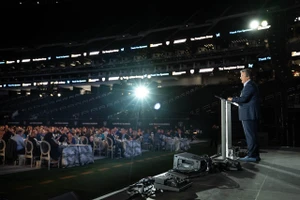
“It created a mindset that anything could be done.”
People would have laughed at the idea of building a stadium like the Allegiant and bringing an NFL team to the city years ago. But the Raiders recently began their fourth season as a Vegas team.
Hornbuckle sees Las Vegas as in a unique proposition, which makes these seemingly-impossible moves possible. “It gets 43 million visitors a year, from around the world,” he explains. “And the unique thing about it is every three days, a hundred thousand people turn over.
“So when it comes to world-class shows, when it comes to the activities we’ve created over the years, the engine is pretty good. What generally happens is we don’t go to them, they come to us – with the exception of sports. When it comes to sports, they weren’t flocking here.”
Vegas loves a winner
But Vegas loves a winner. The UNLV Rebels packed in 18,000-strong crowds at the Thomas & Mack Center during its 1990s heyday. Couple that with everything else the city offers and an away game becomes something much more enticing to supporters.
“The idea that you could take a three-hour football game and make it a three-day experience just struck home.”
It wasn’t from a standing start. The Ultimate Fighting Championship grew up in Vegas. The biggest boxing events take place in town. College tournaments date back decades.
“We had a small trial with the WNBA’s San Antonio Stars, which we moved to Vegas and renamed the Aces,” he says. “They now attract more than 10,000 spectators to their games.
“There’s 2.2 million people that live in the Las Vegas Valley alone and, if you combine that with visitation, it’s a formula for success.
“We’ve seen it with conventions; Vegas attracts about seven million convention visitors a year and attendance will be up 15% on any other place they go because it’s Las Vegas,” he continues.
“There’s something to do after 5pm beyond having a dinner and going back to your room. That same energy is carried over into the sports world.”
It’s not stopping. MLB owners approved the Oakland A’s move to Las Vegas. The team’s new stadium will sit at the corner of Tropicana and Las Vegas Boulevard, in MGM Resorts’ front yard. “We’ll have everything but the NBA, although they are coming for a midseason tournament in the second week of December.”
The experiential evolution
Sports herald the next evolution in Las Vegas’ history, he says. “If you go back to when I first started, these were casinos – and many of them were mob-run at the time – but back in the seventies, they were just casinos,” Hornbuckle recalls. “Then we went through the resort evolution and the Mirage came.
“We went through the restaurant evolution, with world-class chefs coming, and then we went through the retail evolution, building out world-class shopping experiences and now we’re in the entertainment revolution.”
The likes of Adele, U2, Lady Gaga and Kylie Minogue are either performing or coming to town. Vegas is where entertainers at the top of their game go, rather than where they head for one last payday.
Nightclubs brought in the younger audiences making Vegas the nightclub capital of the world. And with three of the four major sports leagues in or coming, becoming the sports capital of the world is next up.
Where can it go from there? Digital may be one option. It’s something Hornbuckle sees as “transformational”, albeit with work to do on improving the experience.
“The question is what’s next? There’s an experiential part of our business that I think is emerging. Las Vegas has always been good at creating something unique you can’t get anywhere else in the world, so we have to think about how we build on that.
“It’s probably around this experiential entertainment concept,” he continues. “While you could put on a set of glasses and have something like that experience at home, we can put it in a real environment and make it part of the activities we offer here. That could be very interesting.”
Considering The Sphere recently opened, the experiential evolution may already be on its way.
Are there storm clouds on the horizon for Vegas?
However, there are obstacles to clear before the evolution can begin. The threat of a recession refuses to go away. F1’s triumphant debut came after controversy around the practice race and disruption to planning.
Of course, MGM Resorts also faced down a cyberattack prompting the operator to shut down systems and weather disruption at its properties.
The business “went to hell and back” in the attack, Hornbuckle said after its Q3 results. During this period staff “showed resilience and professionalism but more importantly, a commitment to our culture of taking care of our guests and each other”.
“We’ve been humbled by the feedback from many of our guests who took the time to call out the exceptional service they received.”
Facing down the threat of recession
For MGM Resorts a recession would have a different impact on Las Vegas compared to its regional properties. And in Vegas, Hornbuckle sees few telltale signs of an economic crash coming.
“When you look at the Bellagio, Aria, The Cosmopolitan and to an extent MGM Grand and Mandalay Bay, we don’t see it in the quantum of room bookings and average rate over time,” he explains. “But Las Vegas is unique in many respects; going back to the Great Recession, even in 2008 we ran at 82% capacity as a city.”
The question then becomes, what are these visitors prepared to spend when they come to town? That’s where he expects to see an impact if a recession kicks in. But the advent of sports provides extra protection and a reason to go to Vegas.
“It doesn’t mean it won’t. It doesn’t mean it can’t. We’re mindful of it, we just haven’t seen it yet.”
Regional reverberations
Las Vegas as a destination may be shielded, but regional properties may bear the brunt of a recession, analysts suggest. That’s not necessarily the case for MGM Resorts.
Its regional properties “behave very differently” Hornbuckle points out. Each of Borgata in New Jersey, National Harbor in Maryland and MGM Grand Detroit generate more than $200m a year.
Borgata and Beau Rivage in Biloxi, Mississippi, with inbound traffic – are more akin to destination casinos than regional hubs.
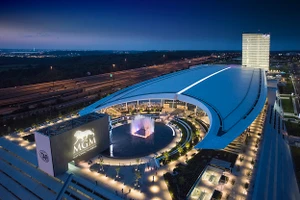
There will be properties more at risk, he admits. For Empire City Casino in Yonkers, New York, 90% of volume comes from within 15 miles. General and regional economies also play an impact, such as the collapse of the Detroit auto industry.
There are additional headwinds, Hornbuckle points out. International travel hasn’t yet returned to pre-pandemic levels, especially from Asia. Visa processing from countries such as Mexico, India and Brazil is painfully slow.
As chair of the US Travel and Tourism Advisory Board, Hornbuckle is working to resolve these issues, as well as others closer to home. Vegas visitation has recovered, but there’s room for improvement.
“Vegas is an international destination, but 50% of the people still drive here, so when you think about highways and byways and roads, President Biden’s infrastructure bill a few years back gave a lot of money to the transportation department.”
Spending that money wisely is no mean feat. “What we have found in the couple of years we’ve been in this position is needing to push the whole government to work together,” he adds.
“Transportation does certain things, commerce does other things, Homeland Security handles the airports and getting all of these bodies to pull in one direction on behalf of tourism is a lot.”
The view from the balcony at Spago
Travel and tourism, after all makes up around 10% of the US economy. As chair of the TTAB it’s down to Hornbuckle to ensure the industry has a strong voice and a strong message to support it. His core focus remains MGM Resorts, but in this additional position he’s speaking for a much wider sector.
It further hammers home how far he has progressed from his start at the Jockey Club. That journey is part of what motivates him to keep going, rather than stopping to enjoy the view.
“Having done it for so long, having worked in so many transformational projects, I guess I have a different perspective now as CEO in that there’s nothing above you,” he says. “You ultimately own everything. There’s no blaming something on another person, you own everything in some way, shape or form.”
Conscious of his own humble beginnings, he wants to leave a legacy at the business.
“We have people in our organisation that are pushing 30 years, who have grown up with us through our management associate programmes. The woman who runs the Bellagio, I hired her 33 years ago as a management associate.
“Seeing some of these stories manifest is really important to me.”
“It’s a dogfight every day“
And there’s plenty more to do, as he grows operations across multiple markets and channels.
Leading a business of MGM Resorts’ scale with all the challenges it throws up, “is a fun job” to Hornbuckle.
“It just is. We get to do a lot of fun things. We get to travel the world, see a lot of things and participate in a lot of projects.
“We’re in a transformational period, too. The whole digital piece of our industry is growing, particularly here domestically, and it keeps us all motivated.
“It’s a dogfight every day, but it’s a fun and interesting dogfight. We’ve got a few more years left in us anyways.”

